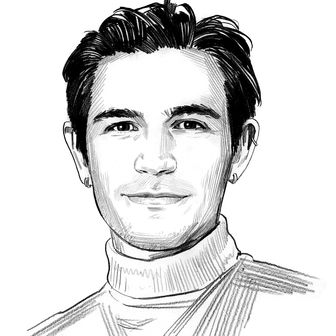Look, we donÔÇÖt necessarily have a dearth of gay serial-killer content (thank you, Ryan Murphy), and we certainly donÔÇÖt have a dearth of true-crime narratives. But here comes one that aims to be an intervention to the archetypal approach of both. Last Call: When a Serial Killer Stalked Queer New York is an upcoming HBO documentary series based on the nonfiction book by Elon Green of the same name. The book intentionally focused on the victims instead of the killer. The series will focus both on the victims and the activists who advocated for the police to do something about the killings. ÔÇ£The manuscript came to me a while ago and I passed on the project because I was very nervous about doing true crime, nervous about revictimizing the queer community,ÔÇØ director Anthony Caronna told Vulture. ÔÇ£And so I passed on it.ÔÇØ
But then producer Howard Gertler came back to Caronna with a new context in mind, this time framing it as ÔÇ£a chance for this to be an activist story and a social-justice story wrapped in true crime,ÔÇØ in CaronnaÔÇÖs words. From there, Caronna and Gertler got to work.
The two have long histories with the queer-documentary genre. Gertler worked as a producer on movies like Oscar-nominated All the Beauty and the Bloodshed and How to Survive a Plague, while Caronna directed a documentary about legendary queer party producer Susanne Bartsch called Susanne Bartsch: On Top. Together, the two aimed, essentially, to queer the genre of true crime ÔÇö refocusing the documentary on systemic issues rather than on the killer. ÔÇ£We were asking questions as filmmakers that other people werenÔÇÖt necessarily asking in other tellings of the story,ÔÇØ Gertler said. ÔÇ£And I think some of that comes from lived experience.ÔÇØ Specifically focusing on the activists gave the project focus. ÔÇ£There are stories related to the victimization of queer people where there were queer-activists interventions, and those organizations were omitted from the narrative when they were doing a lot of work,ÔÇØ Gertler said. ÔÇ£IÔÇÖm not saying itÔÇÖs necessarily an intentional omission. But I think it takes a little bit of sensitivity to know where to look and what to ask.ÔÇØ
Gertler and Caronna found archival footage from the time of the killings that even Green wasnÔÇÖt aware of, making the docuseries something ÔÇ£new and complementaryÔÇØ to the best-selling book. And why a series versus a film? ÔÇ£ItÔÇÖs just a big story,ÔÇØ Caronna explained. ÔÇ£Once youÔÇÖre sitting with these family members, they have so much that they want to tell about their loved one. Then once youÔÇÖre sitting down with these investigators and youÔÇÖre starting to unpack what the investigation was like, but also what the blind spots were in the investigation, thereÔÇÖs just so many things that we try to weave into this series. It was the most complicated storytelling I could ever imagine doing. WeÔÇÖre trying to thread this needle, and weÔÇÖre trying to be so careful telling this queer-activism story and also this investigation story and also giving a fully fleshed idea of these victims.ÔÇØ The HBO series will premiere on Max on July 9. After all, thereÔÇÖs no better post-Pride comedown than to remind us why Pride was a riot in the first place.


